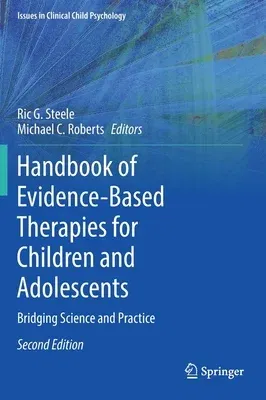Growing numbers of young people--some 10% to 20% of school-age
populations--have mental health problems requiring intervention, and
current policy initiatives identify evidence-based therapies as the most
effective and relevant forms of treatment. By reviewing evidence-based
treatments (EBTs) across a wide spectrum of conditions, the Handbook of
Evidence-Based Therapies for Children and Adolescents: Bridging Science
and Practice closes the gaps between children's needs and services as
well as those between research, training, and practice,
Several EBT options, both proved and promising, are offered for each
covered disorder and are bolstered by case examples, tables, and
reference lists. Features include chapters on implementation issues such
as diversity, family treatment, assessment strategies, and community
settings, and step-by-step guidance for the researcher looking to gather
empirical support for therapies.
With comprehensive coverage provided by numerous leading experts in the
field, this volume covers the broadest range of disorders over the
widest pediatric-adolescent age range, including:
- Behavioral disorders, ADHD, aggression, bullying.
- Phobias, panic disorders, school refusal, and anxiety.
- Autism and pervasive developmental disorders.
- Depression, mood disorders, and suicidal behavior.
- Alcohol and drug abuse.
- Eating disorders and obesity.
- PTSD.
With its emphasis on flexibility and attention to emerging issues, the
Handbook of Evidence-Based Therapies for Children and Adolescents is
essential reading for anyone who works to address the mental health
needs of children, including clinical child, school, and counseling
psychologists; clinical social workers; and child psychiatrists as well
as advanced-graduate level students in these and other related fields.

